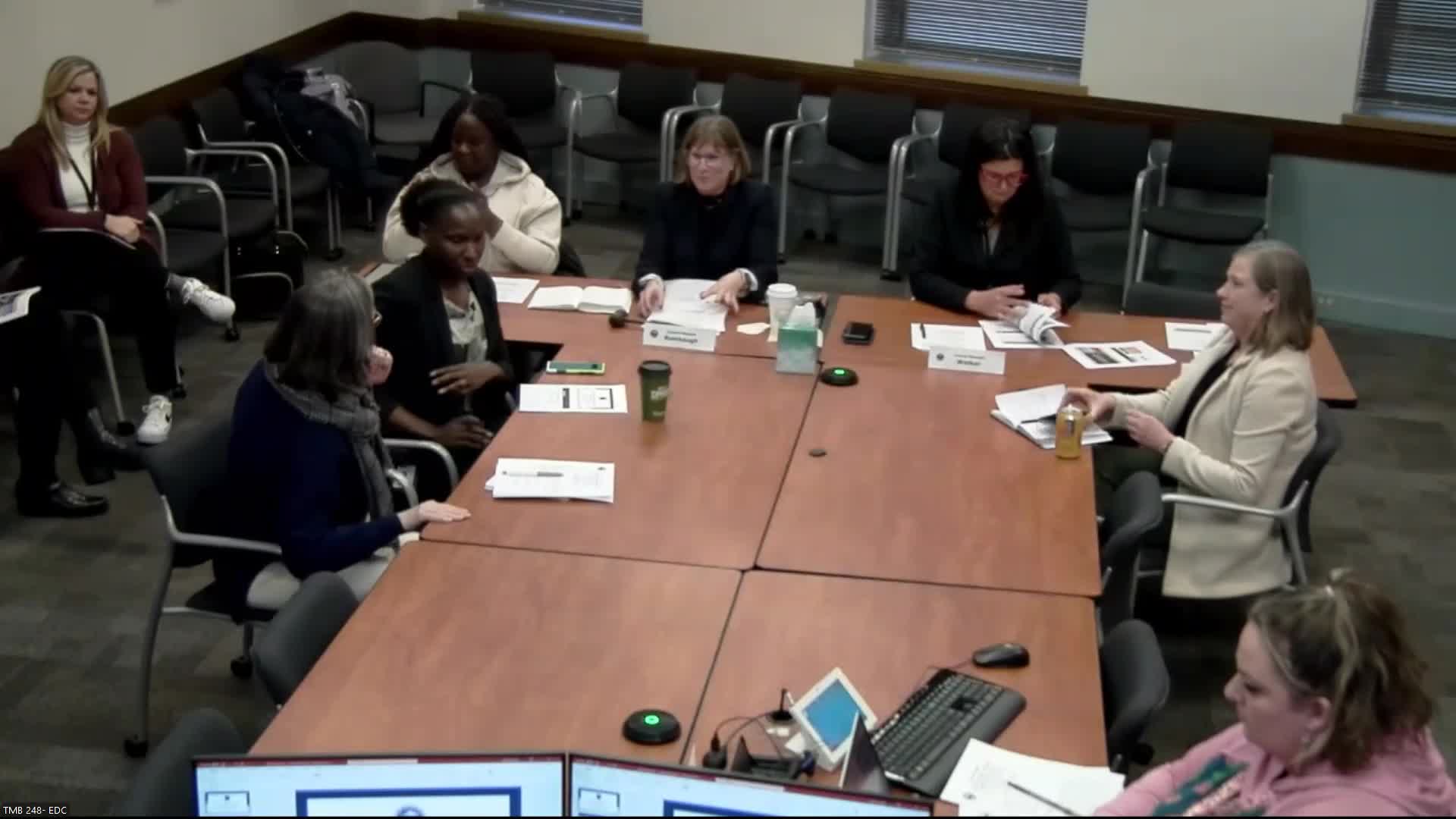Tacoma Community Redevelopment Authority outlines priorities; NOFA expected with just over $8 million
Get AI-powered insights, summaries, and transcripts
Subscribe
Summary
At a Feb. 13 Community Vitality and Safety Committee meeting, TCRA staff reviewed the agency's history, programs and 2025 priorities, including a capacity-building workshop, an early-March NOFA with roughly $8 million available, and a plan to systematize land acquisition if future funding becomes available.
Felicia Medlin, division manager in the City of Tacoma's Community and Economic Development Department, told the Community Vitality and Safety Committee on Feb. 13 that the Tacoma Community Redevelopment Authority is expanding several housing and economic development activities while preparing a funding round she expects will top $8 million.
The report outlined the TCRA's role administering federal and state housing funds, its portfolio of low-interest loans and revolving business loans, and near-term work including a capacity-building workshop Feb. 19 and a notice of funding availability anticipated in early March. Medlin said the NOFA would include just over $8,000,000 from local and federal sources.
The TCRA was established in 1973 to manage federal programs such as HOME and Community Development Block Grant funding and later took on administration of state housing trust and local affordable housing funds, Medlin said. Rhonda Vandermeer, senior housing analyst and staff liaison to the TCRA, presented alongside Medlin and described the board's required composition, current vacancies and the staff support that runs these programs.
Medlin said the board focuses on five professional areas (legal, banking, real estate, accounting, and development/construction) and currently has three vacancies; two appointments are expected to be confirmed and begin March 1. Board work is supported primarily by the Housing Division and finance and business services staff.
Program highlights cited in the presentation included low-interest loans for affordable housing development, a single-family rehabilitation program for low-income homeowners, down payment assistance (with an explicit emphasis on outreach to Black households) and ongoing compliance monitoring of funded projects. Medlin said five projects were active in 2024 with a combined TCRA portfolio value of a little over $21,000,000; most of that funding was assembled in 2020'021 and the projects serve households at roughly 30% to 60% of area median income.
Medlin described a down payment assistance program funded by the Washington State Department of Commerce that is anticipated to serve about 20 households at 80% AMI, but she said rising housing and financing costs have widened the subsidy gap. "Housing costs have continued to rise," Medlin said, and the median Tacoma home price in recent months is about $525,000. She told the committee the subsidy gap for buyers at 80% AMI has climbed from roughly $70,000 to $100,000'00$120,000 for some households, requiring closer partnerships with lenders and developers.
Medlin also discussed economic development work, including a revolving loan portfolio used for working capital and equipment loans, and the Community Revitalization Partnership (CRP) program. She said the city previously authorized a $4,000,000 grant and that TCRA will manage a portion of those funds to create a revolving loan pool.
Looking to 2025, TCRA staff described a capacity-building workshop (Feb. 19) to help new or smaller nonprofit developers prepare competitive applications and said a NOFA will follow in early March. Medlin also said staff intend to formalize a land-acquisition process so the authority can evaluate and respond quickly if acquisition funding becomes available in the future; she emphasized there is no currently planned funding ask attached to that work.
Council members asked about how TCRA-acquired land might be used, the source and scale of the NOFA, and which projects were included in the 2024 portfolio. Medlin listed five active or recently completed projects: Tahoma Place (Korean Women's Association), Housing Hilltop, Low Income Housing Institute's Patsy [sic] project in East Tacoma, Mercy Housing's Aviva Crossing near Tacoma Community College, and Shiloh Baptist on Hilltop. She also said Habitat for Humanity is building a 16-unit homeownership project in South Tacoma targeting 80% AMI.
Medlin closed by urging continued partnership among city departments, developers and lenders to close financing gaps and by saying TCRA would circulate materials from its workshop and the NOFA once available.
Ending: Committee members thanked TCRA staff for the overview and discussed follow-up items including vacancy confirmations, posting project lists on city dashboards, and monitoring the NOFA schedule.
